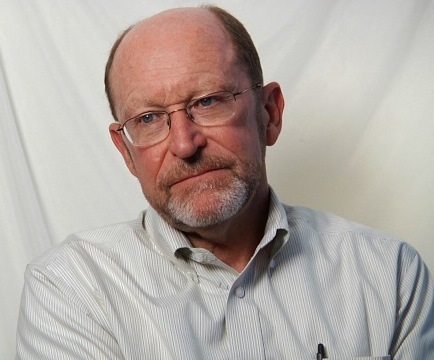By Pamela F. Cipriano, PhD, RN, NEA-BC, FAAN and Albert J. Shimkus, Jr. CAPT, NC, USN (Retired)
Every day, in hospitals, clinics, schools and homes across the United States, nurses are on the front lines of providing high quality health care. The men and women who have served our country are entitled to the highest quality care and should be able to get that care when they need it, without enduring weeks or months on a waiting list.
Therefore, when the Department of Veterans Affairs' (VA) recently issued a proposed rule to allow advanced practice registered nurses (APRNs), to practice to the full extent of their education and training, it should have been lauded as an important step towards providing our nation's veterans with direct access to the high quality patient care they deserve. Lifting burdensome regulatory requirements for APRNs -- nurse practitioners, certified registered nurse anesthetists, clinical nurse specialists and certified nurse midwives -- would immediately improve the VA's capacity to provide timely, effective and efficient care.
Instead, some physicians and physicians' organizations have attempted to derail the proposed rule by making outrageous and divisive claims that perpetuate an old narrative that nurses are trying to replace or "act" like physicians, rather than putting the needs of patients first. Shame on those who would so blatantly misrepresent the facts, mislead and promote fear among the very people they serve.
To imply that advanced practice registered nurses are unqualified or that their care puts the health of veterans at risk is at best willfully ignorant, and at worst, dishonest. The research is clear: Nurses consistently deliver exceptional care with high patient satisfaction when they are allowed to work to the full extent of their education and training. APRNs practice advanced nursing, not medicine, and there is no basis for continuing to require supervision. As is true with our physician colleagues, APRNs regularly consult, collaborate and refer as necessary to ensure that the patient receives appropriate diagnosis and treatment.
Furthermore, the proposed rule explicitly states that "APRNs would not be authorized to replace or act as physicians or to provide any health care services that are beyond their clinical education, training, and national certification." The proposed rule is also consistent with the evidenced-based recommendations advanced by the Institute of Medicine (now the National Academies of Sciences, Engineering, and Medicine) in its 2010 report, The Future of Nursing: Leading Change, Advancing Health, which clearly stated that APRNS "should be allowed to practice to the full extent of their education and training."
To quote the American Medical Association's Principles of Medical Ethics, "As a member of this profession, a physician must recognize responsibility to patients first and foremost, as well as to society, to other health professionals, and to self." The concerted campaign by organized medicine to halt progress in the care of veterans is in conflict with the dictum of "do no harm."
The VA notes that the proposed changes would not be "completely novel or unexpected to the general public or other Federal entities that provide health care services to beneficiaries." It would bring the Veterans Health Administration (VHA) in line with the Military Health System, Army, Navy, Air Force, Combat Support Hospitals, Forward Surgical Teams, and the Indian and Public Health Services where APRNs have the ability to prescribe, initiate and coordinate patient care, diagnose ailments, order and interpret tests, and manage chronic health conditions.
Nurses are the largest group of health care professionals and consistently rated by the public as the most trusted. This action is the right policy at the right time to remove all impediments to veterans receiving timely, high quality health care services. The future of health care calls on all health care professionals to work together as a team to meet the growing demands. Our nation -- and our veterans -- deserve nothing less.
Albert J. Shimkus, Jr. CAPT, NC, USN (Retired), is Associate Professor, National Security Affairs, U.S. Naval War College and these opinions are his alone and not the position of the Naval War College or the U.S. Navy.
